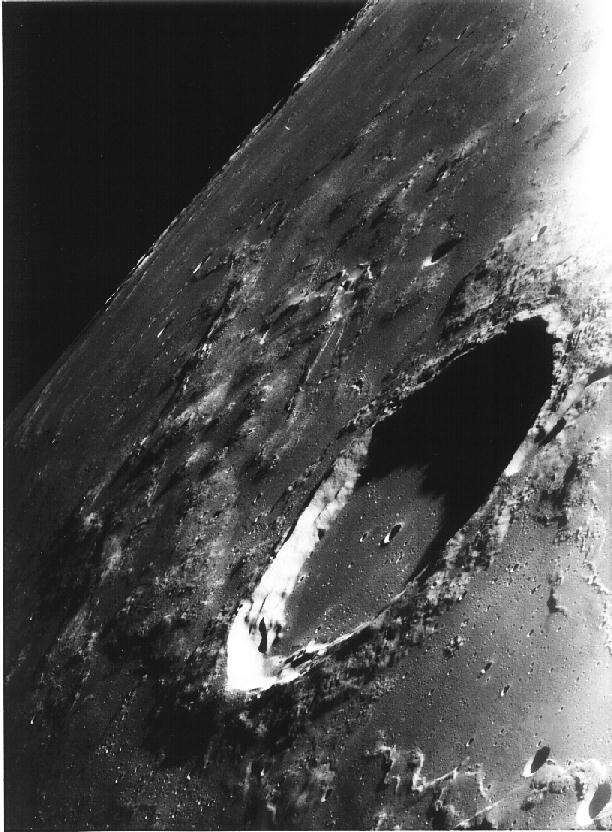At a point overlooking the city, a car park at 9pm. Looking upwards, through the open sunroof of a parked car, the clouds lit from beneath by the glow of the city.
(…)
Grace:
Thank heavens, else they recede with the sky and we lose them til tomorrow, as if they were history. Only in the city do we capture the clouds – we hold them in an immobile and insidious spotlight, lest they slip beyond our recognition into darkness. In the age of reason we have to be sure at all times that the clouds exist. It is reassuring but saddening too. An affirmation of sentience that somehow forbids sleep?
Estella:
There are no silver linings to be found with clouds above a city at night, instead the city provides something akin, a mirror perhaps. The horizon lit by a thousand points of light providing a golden lining between the earth and the sky – a delineation that is most obvious at the edges, where humanity hugs the ground, an insidious urban sprawl. Aspiration breaks this artificial lining though, where humans have struck upwards with sky-rises that create a lattice of lights like the facets of a crystal – refracting our perception of form as something that belongs to the earth. Human aspiration is like the atmosphere turning into a cloud to announce its presence. In one moment it is a wandering mass of individuals – carefree and restless – the next a union of effort, a confluence of wills and a cloud – the city – is produced.
Grace:
It seems to me that people climb a hill – right to the top – to seek distance. This then, is the real point. When you achieve distance you achieve momentary independence. What then? What does one seek in isolation?
Estella:
Beneath us our compatriots, our families, our enemies and lovers. Above us the compassion and benevolence of a world apart. People seek the point because reaching any point is to see the intention of humanity. To see that as a tool humanity is a blade gliding through thin air – in contact with nothing – swung by a species fighting shadows.
The drunks and the druggies see this, see the millions of blinking lights and perceive of them hostile in their ability to remain distinct from one another. The drunks see that they are receiving a thousand individual bullet points in a lecture in manners from a superior they do not respect. They can never conceive of all the conflicting rules as being something they can understand so they seek to blur the boundaries – to turn the city into the heavens – until they become a single celestial cloud in which it is safe to sleep.
The lovers see this - they are in contact with nothing, and as such, even in company are alone. So the lovers turn to one another and seek solace not in each other’s words but in one another’s breathing.
The lonely see the harbour, the boats moving slowly to sea, the trees moving barely. The lonely hear the wind and the motorway and think of them sisters. They hear the chirping of thousands of crickets; see the blinking of thousands of lights and think of them brothers. At the point the lonely find thoughts like fireflies, incandescent sparks swimming through black depth. They grow entranced at the beauty of these glowing spectres, adrift and disembodied hopes. At the point of the world the lonely find siblings in nature, unusual comfort in strangers.
At the point everybody finds solace in nothingness, see in the distance the ancestors of their thoughts, hear in the wind the sermons of some estranged teacher they once respected, but had long since forgotten.
Grace:
At the point I think people become a body apart, whether in the interior euphoria of teens marching side by side or of lovers momentarily staring at the same point in the distance, or as a drunk who becomes a cloud – less presence but more impact – or even the lonely who are already apart, but who find in themselves a million potential relationships.
Grace and Estella depart the point.
Grace:
At the very tip it becomes pointless to ignore others – one feels perhaps a renewed drive to engage with others in ways that convey some of the meaning gleaned from seeing the stars and the city mimic one another. Descending though the lights all change – the city no longer twinkles but it glares – the heavens retreat behind looming constructions of brick and concrete and glass. The beautiful separation seems somehow less applicable, and the lack of recognition on the faces of those whom you meet makes you pine again for existence on the point.
(…)
Wednesday, April 2, 2008
Subscribe to:
Post Comments (Atom)

No comments:
Post a Comment